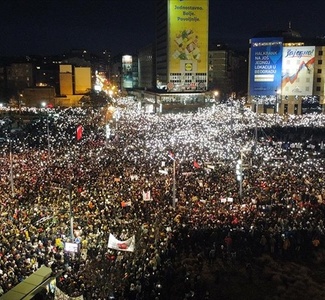US-financed $3 billion F-35 deal draws criticism amid Gaza civilian casualties
The Israeli Ministry of Defense has signed a significant agreement with the United States to acquire a third squadron of Lockheed Martin F-35 stealth fighter jets.

 Google News'te Doğruhaber'e abone olun.
Google News'te Doğruhaber'e abone olun. This $3 billion deal, financed through US Foreign Military Financing (FMF), will see Israel adding 25 more F-35 jets to its air force, raising its total fleet to 75.
The acquisition, formalized through a Letter of Offer and Acceptance (LOA) by the Israeli mission in the United States, is set to begin deliveries in 2028 at a rate of three to five aircraft per year. This procurement follows a request made by the Israeli Ministry of Defense in September and has been approved by Israeli Security Minister Yoav Gallant and Security Ministry Director General Eyal Zamir.
The F-35 Lightning II, produced by Lockheed Martin, is a state-of-the-art multirole stealth fighter known for its advanced stealth capabilities, enabling it to evade radar detection. It is designed for various missions and comes equipped with sophisticated avionics, sensors, and weapon systems. The aircraft is available in three variants: the F-35A for conventional takeoff and landing, the F-35B for short takeoff and vertical landing, and the F-35C for aircraft carrier operations.
The introduction of more advanced military aircraft into the Israeli arsenal has the potential to increase the scale and efficiency of military operations in Gaza. Given the current situation, where Palestinian civilians, including women and children, are bearing the brunt of military actions, the acquisition of these jets could lead to even more devastating consequences for the civilian population.
The financing of this deal through US Foreign Military Financing (FMF) is deeply troubling to many pro-Palestinian advocates. US military aid to Israel is seen as enabling and perpetuating the cycle of genocide and occupation. There is a growing call for the United States to reassess its military aid policies and consider the human rights implications of such support.
While the deal enhances Israel's military capabilities, it does so at the expense of further marginalizing and endangering the Palestinian population. It underscores the urgent need for a shift in focus from military dominance to pursuing genuine peace and justice for Palestinians, ensuring their rights, safety, and dignity are upheld. (ILKHA)



















































